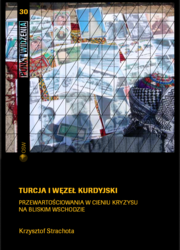Turkey and the Kurdish problem

The Kurdish issue remains a serious challenge to the stability and security of both Turkey and much of the Middle East. Over the last ten years, however, the region has witnessed substantial major changes (including, Turkey’s socio-political transformation, and the wars in Iraq and Syria), which have altered the conditions under which the so-called ‘Kurdish problem’ has been approached.
The new context has fuelled the ambitions, the potential, and the capacity to act not only within Turkey but also among the Kurdish people. Alongside the historically-motivated mutual distrust, hostility and repeated tensions, new opportunities for dialogue and effective cooperation have emerged between the Turkish state and the Kurdish people (particularly the Iraqi Kurds).
The situation in the region is dynamic and the geopolitical limitations faced by Turkey and the Kurds remain significant. It is therefore impossible to prejudge the future shape of the relationship between the two sides. Nonetheless, a notable breakthrough in Ankara’s approach to both the Turkish Kurds and the Middle East, coupled with the consolidation of the Kurds and a deep crisis in the region, indicate that the relations between Turkey, the Kurds and the Middle East will not return to the geopolitical paradigm which dominated much of the twentieth century.
Krzysztof Strachota is the head of the Turkey, Caucasus and Central Asian Department at the Centre for Eastern Studies. He specialises in issues of political stability and security across the region and its wider neighbourhood (the Greater Middle East).




